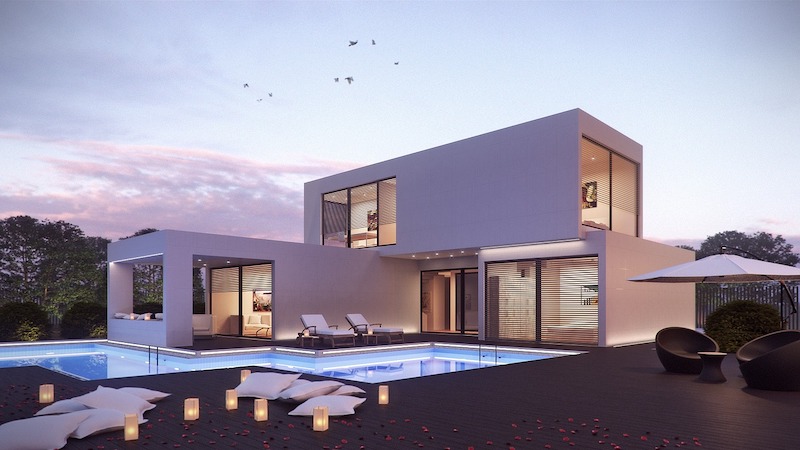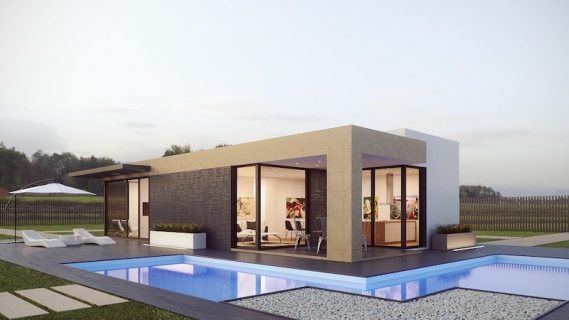Are you considering adding an outdoor pool to your New Jersey home? It can be a great investment in terms of enjoyment and exercise and also one that may add value to your home should you decide to sell. Many homeowners discovered the benefit of home pools during the pandemic when other pools were forced to close. Pool construction companies have been in heavy demand in the last two years.
Pools come in various types and methods of construction. Some people build a pool above the ground for simplicity’s sake. However, the most impressive and effective pool is one that is set in the ground, and these are available using three construction methods: concrete, vinyl, and gunite. This article looks specifically at gunite, the benefits of using this material, and where it differs from other methods. Let’s begin with an explanation of what gunite is.
What is Gunite?
If you check out https://www.everclearpoolsnj.com/ you’ll find much more detail about gunite pools than we have space to go into here. So, gunite is a mixture of sand, gravel, and cement. If that sounds familiar, it’s because they are the same ingredients found in concrete. The traditional method of building a concrete pool is to apply the concrete around a specially constructed wooden frame. A gunite pool, however, uses a steel frame, and that is just the first difference between the two.
Gunite is a dry mixture that is loaded into a special spray gun. It meets with water as it emerges from the nozzle, which means it can be used on just about any surface, even one that is entirely vertical. This is what gives gunite versatility when used in pool building. Let’s look more at the benefits of a gunite pool.
What are the Benefits of Gunite Pools?
Gunite was invented for use in the construction of other structures that required a frame and a concrete layer. In fact, for your pool, several layers will be applied. This has the effect of building up the structure to the required size. Benefits include not only its versatility but also that it is long-lasting, easy to shape, and will hold water. We mentioned shape, so let’s elaborate on that.
What Shape is a Gunite Pool?
The answer to this question is any shape you want it to be. As gunite is sprayed in layers, it can be applied to curved surfaces in the frame as much as flat ones. So, you can design your pool to be a unique shape if you wish, as this is a material that can be customized in many ways, and we’ll talk about that a little later on. We’d like to have a quick look at the maintenance of gunite before we look at some further advantages and disadvantages of this unique material.
Is Gunite High Maintenance?
A long-lasting material, gunite needs only regular maintenance that applies to other types of pools. This can be carried out by a pool maintenance company that will provide you with a regular cleaning and filter maintenance routine. Gunite is, therefore, no more high maintenance than a concrete pool and less so than the vinyl option, which is the other method of pool construction. Now let’s have a look at some facts you need to know about gunite pools, some of which are benefits and others that you might not be too keen on.
Things You Should Know about Gunite Pools
Here is our list outlining factors you need to consider if you are weighing up the pros and cons of different methods of pool construction:
- Gunite can be sprayed onto any structure or type of surface and is a more convenient method of application than concrete or a similar shotcrete method.
- Gunite can be customized in many ways, with various potential finishes, including plaster, glass, quartz, pebbles, and tiles. Each of these is applied after the gunite has dried.
- Customization also extends to many accessories and add-ons such as waterfalls, bar stools, custom benches or steps, tanning ledges, grottoes, and other custom features.
- Gunite does not suffer from stress cracks that come with standard poured concrete constructions as it is far more durable, and the application process increases the density of the concrete mix.
- Be aware that a gunite pool will take a long time to build. This is because each layer of the material must be left to dry and cure correctly before the next can be applied. It is this curing that allows gunite to create a solid pool. You can expect to wait up to 3 months for your gunite pool to be ready for use.
- Gunite is not a smooth surface that you will get with a vinyl pool, so be aware that it will feel rough to the touch. Of course, you may have chosen to apply one of the finishes we mentioned above.
- Plaster is the cheapest and most common option for finishing the surface of a gunite pool but is also high-maintenance and will need redoing every few years. Alternatives such as tiling or adding pebbles are the recommended methods for low maintenance and also durability. A tiled pool also looks quite spectacular
Those are a few points that should help you make a decision as to whether a gunite pool is the right option for you, so all we need to do to finish is advise you on how to choose the right New Jersey gunite pool installation professionals.
Choosing a Gunite Pool Company in New Jersey
We have given you the website of a reputable New Jersey pool installation expert, so you have a starting point. We recommend you talk to them first and let them know your ideas, and they will advise as to the practicality of your dream pool. You should also get two further quotes if possible for comparison. Make sure you choose the pool installation company with expertise in gunite construction, and you’ll soon have a pool that you can be proud of.


